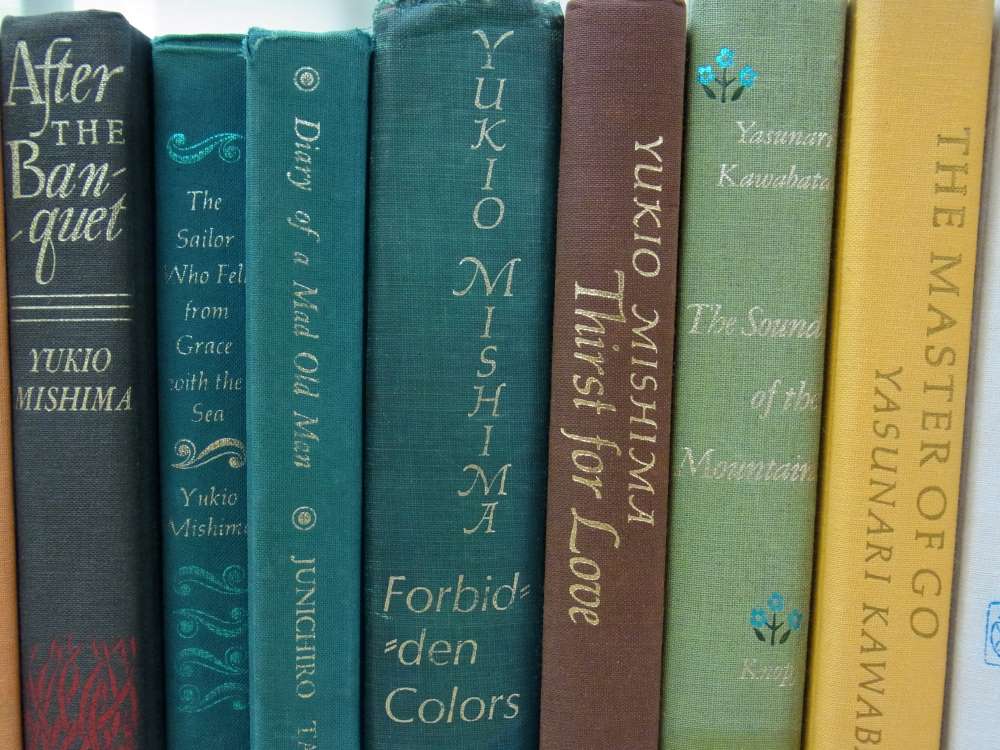 What does it mean for a literary tradition to enter a different cultural and literary sphere through translation? In recent years, Japanese fiction in English translation—exemplified by works such as Yuzuki Asako’s Butter, Murata Sayaka’s Convenience Store Woman, and Kawakami Hiromi’s Under the Eye of the Big Bird—has attained striking global visibility. Yet the conditions under which Japanese novels gained earlier recognition beyond Japan were far from straightforward.
What does it mean for a literary tradition to enter a different cultural and literary sphere through translation? In recent years, Japanese fiction in English translation—exemplified by works such as Yuzuki Asako’s Butter, Murata Sayaka’s Convenience Store Woman, and Kawakami Hiromi’s Under the Eye of the Big Bird—has attained striking global visibility. Yet the conditions under which Japanese novels gained earlier recognition beyond Japan were far from straightforward.
Nobel laureate Ōe Kenzaburō (1935–2023) once observed that Japanese literature of the generation before him was written in ‘words that simply could not be translated.’ Indeed, the works of Japanese authors—including Tanizaki Jun’ichirō (1886–1965), Kawabata Yasunari (1899–1972), and Mishima Yukio (1925–1970), the so-called ‘Big Three’—were frequently modified, adjusted, and, in some cases, even omitted in English translation. Why were such interventions considered necessary? What linguistic, cultural, and editorial logics governed them, and how was the reception of Japanese literature in the English-speaking world shaped—often in unexpected ways—by their outcomes?
This talk focuses on the 1950s to the 1970s—a formative period in the global circulation of Japanese literature—to examine translation, editing, and publishing as sites of intercultural negotiation. Drawing on archival materials from publishers such as Alfred A. Knopf, Inc., alongside translators’ papers, it explores the recurrent challenges encountered by cultural mediators, including translators and editors. By reframing translation not as a simple act of transfer but as a dynamic process of transformation and compromise, the talk seeks to illuminate the ‘in-between’ (aida): what it reveals about the fundamental differences between the English ‘novel’ and the Japanese shōsetsu, and how those very differences not only unsettled prevailing assumptions but also opened up new literary possibilities.
Mai KATAOKA is an Associate Professor at the International Research Centre for Japanese Studies (Nichibunken). She holds a BA in English from Royal Holloway, University of London, an MA in Comparative Literature from University College London (UCL), and a PhD in Japanese Studies from the International Research Centre for Japanese Studies (Nichibunken & SOKENDAI). Before taking up her current role at Nichibunken, she was Senior Teaching Fellow in Translation Studies at SOAS, University of London, and Project Research Fellow at the University of Tokyo.
Her research focuses on the processes of English translation, editing, and publishing of modern Japanese literature, as well as its international reception and dissemination. She was awarded the 46th Suntory Prize for Social Sciences and Humanities in 2024 and the 30th Japan Comparative Literature Association Award in 2025 for her monograph Nihon no shōsetsu ni matsuwaru tokui na mondai [Unusual Problems Involved in Translating Japanese Shōsetsu] (Chūōkōron-Shinsha, 2024). She is also currently serving as Vice Director of the Uehiro Research Division for Global Japanese Studies at Nichibunken.
| Contact |
|---|
| Mr Freddie Semple: fs468@cam.ac.uk |
